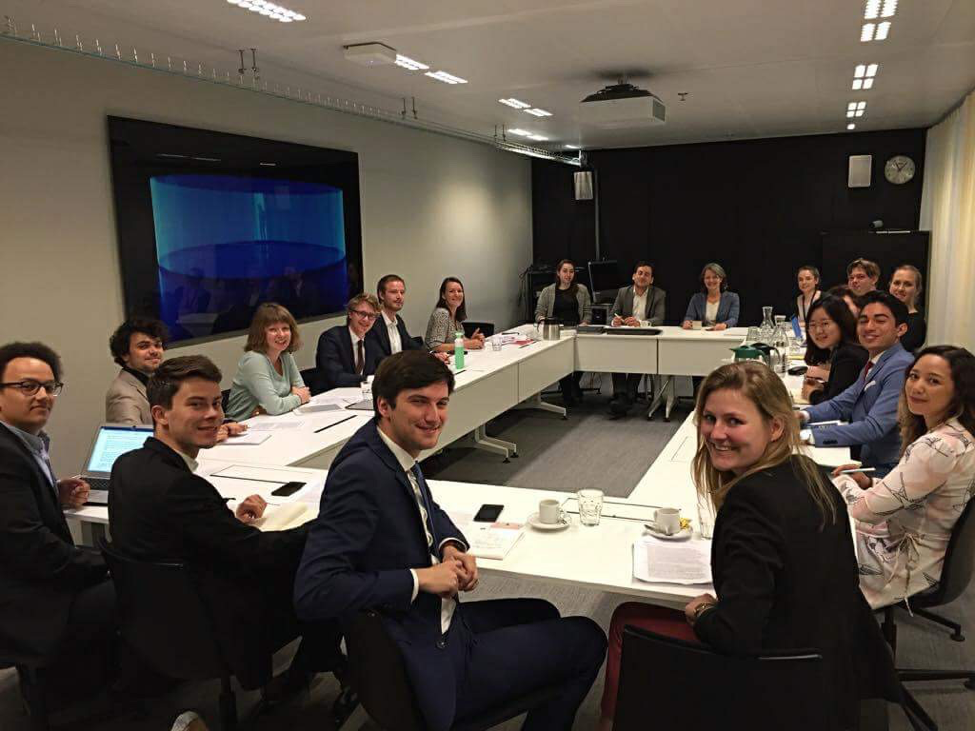By Eunjung Oh*
Living in a university studio which is coincidentally located right across the Dutch Ministry of Foreign Affairs, I spot people working in the Ministry from my window every day. Looking at this glass-covered building, I have often wondered what kind of issues these people would deal with every day. Sometimes, I envision the Ministry as a mystic world behind the glasses. Luckily, the third PAX Crash Course session was conducted at the Ministry of Foreign Affairs and gave me the opportunity to enter the world behind the glasses.
Through the past two Crash Course sessions by the Leiden University & Clingendael and the NRG Petten, we got to understand more about the development of the Non-proliferation Treaty (NPT) and the Treaty on the Prohibition of Nuclear Weapons (TPNW), scientific principles and the impacts of nuclear weapons, as well as the political dynamics and challenges behind nuclear weapon diplomacy. As we got to know more about the countries involved in the issue, I wanted to know what the positions are of the NPT signatories and how these are reflected through their domestic and international policies. So I was very glad that we had an opportunity to meet with Marjolijn van Deelen and Tom Coppen of the Dutch Ministry of Foreign Affairs, who have given us more insight into the Dutch position and policies in terms of nuclear disarmament.
Ministry of Foreign Affairs
The security policy department of the Dutch Ministry of Foreign Affairs is set apart due to the sensitivity of the materials discussed. There are six divisions, of which the issues of nuclear weapons are discussed in the Division of Weapons of Mass Destructions. In correlation with the Dutch policy on nuclear weapons, the Ministry reconfirmed to us that the Netherlands considers the NPT as the cornerstone for nuclear proliferation. Compared to other ‘big’ power players of the world, the Netherlands considers itself as relatively smaller in terms of politics and military, which sets the Netherlands more dependent on the international legal framework and international players. Thus the significance of the NPT to the Netherlands lies on the fact that currently it is the legal basis which holds binding power to the P5.
The Ministry made clear that the Netherlands has always been trying to be open and transparent in its position towards the NPT and the end goal of a world free of nuclear weapons. While I do appreciate the Netherland’s proactive movements towards the goals of the NPT, it brought me to question how the Netherlands could be so explicit about its stance when it is also a NATO member state. Knowing that NATO is an alliance that ‘remains a nuclear alliance as long as nuclear weapons exists’, I found it hard to fully understand the Dutch position towards the total abolition of nuclear weapons. Yes, the Netherlands may be a small player in the international field. But doesn’t its commitment to nuclear disarmament also indicate that the Netherlands should at least take its own responsibility and call for the removal of the tactical nuclear weapons in Europe (and, if we believe the biggest Dutch public secret, also from the Dutch soil)?
The meeting at the Ministry helped me to understand that the Netherlands’ situation could be rather complex in terms of NATO, and that it makes careful choices in nuclear diplomacy so that the conditions of certain treaties are both compatible with the NATO membership and are actually effective. After having a better understanding of the Netherlands, I am curious to see how other nations would present themselves in the upcoming NPT PrepCom in Geneva. Will the responses by the rest of the NATO member states be different compared to last year’s PrepCom? Also, how much will the positions of certain states be influenced in the midst of various challenges, notably the current crisis in Syria and the lack of united voice among the nuclear weapon states? Guess we will find out soon.
*Eunjung Oh is participating in the PAX Nuclear Diplomacy Crash Course 2018 along with 14 other participants. She is doing her Bachelor’s degree in International Law at Leiden University College the Hague.

